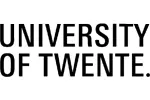We're moving! This site will be relocating to goingto.university in 2026. Please update your bookmarks to the new address.


| The award | How you will study | Study duration | Course start | Domestic course fees | International course fees |
|---|---|---|---|---|---|
| BSc | Full-time | 3 years | September | - | - |
In a rapidly changing world, organizations need communication professionals with strong problem-solving skills. The University of Twente offers a modern Communication Science programme combining communication with design, organization and technology.
Technology has a profound impact on modern life. Our society is changing into a digital society. Organizations are in the process of becoming fluid, transparent, and flexible. Instead of stability and tradition, change and development have become the norm. The boundaries between home and work have blurred. People are permanently connected, spending much of their time in present absence and absent presence. Ongoing globalization is pushing organizations further and deeper into international and intercultural contexts. The media landscape has drastically changed: Traditional media are showing serious signs of fading, while new media continue to pop up and grow. While facing permanent information overload, people are often less informed and less involved than ever before.
At the heart of this technologized and rapidly changing world stands communication. Modern organizations need skilled communication professionals to survive and thrive in their turbulent environments. As a student you can only be properly equipped for this complex and demanding field if you learn to connect communication to the possibilities of design and technology ? as well as to the complexities and challenges of contemporary organizations. In the Bachelor's programme Communication Science at the University of Twente (UT), that is exactly what we do: focus on the knowledge, attitude and skills you will need to be a successful communication professional in the future.
What is Communication Science?
Communication Science focuses on the ways people interact, share information, collaborate, and build lasting relationships. As a communication professional from Twente you will know all there is to know about the rise and fall of new communication channels, and about the best ways of using them. You will know how to use communication strategies to influence or facilitate the behaviour of individuals and organizations. You will understand the role of communication as a binding force between people, in and between organizations, and throughout society. You will have the ability to look at issues from different perspectives, to translate complex matter into meaningful information. You will understand the practical implications of policies and strategies. Framing, bridging and bonding will be among your core activities.
Communication Science at a technical university
The UT aims to educate the communication professional of the future. In our Bachelor’s programme in Communication Science, communication theories are connected with organizational contexts, technological developments, and design. The UT is the ideal environment for this ambition: many of the technologies that will affect our future are developed here on campus. Our teaching concept – the Twente Educational Model (TEM) – is geared to our ambitions. From the very first year, you will be encouraged to actively, critically, and creatively work with concepts, theories, and methods, and to combine strategic thinking with the development of strong personal communication skills.
Read more about the reasons to study communication science.
Students with a school-leaving certificate from another country will be admitted to the programme provided the certificate is equivalent to the Dutch VWO diploma (for example, the German Abitur, the Belgian Diploma van Secundair Onderwijs, or the International or European Baccalaureate).
A further requirement is that you must have a reasonable grasp of mathematics and a satisfactory command of English. This can either have been part of your pre-university education, or, alternatively, you can meet this requirement by passing the University of Twente entrance exam.
Students with a German Abitur certificate with Mathematik and Englisch up until the final exams will be directly admitted to the Communication Science programme without any further requirements being set. Students with a different foreign certificate of previous education are advised to contact the Admission Office of the University of Twente early on. The Admission Office will then determine whether you meet the admission requirements for the Bachelor’s programme in Communication Science.
Below are some suggested courses at other providers that you may also be interested in:
Consider a Foundation or Pathway course at University of Twente to prepare for your chosen course:
If you do not meet the entry requirements for this course then consider one of these courses from another institution:
There are 85 other courses listed from University of Twente. A selection of these are displayed below:
Join the StudyLink email list and never miss a chance to turn your study abroad dreams into reality!

Find out more about studying in the Netherlands